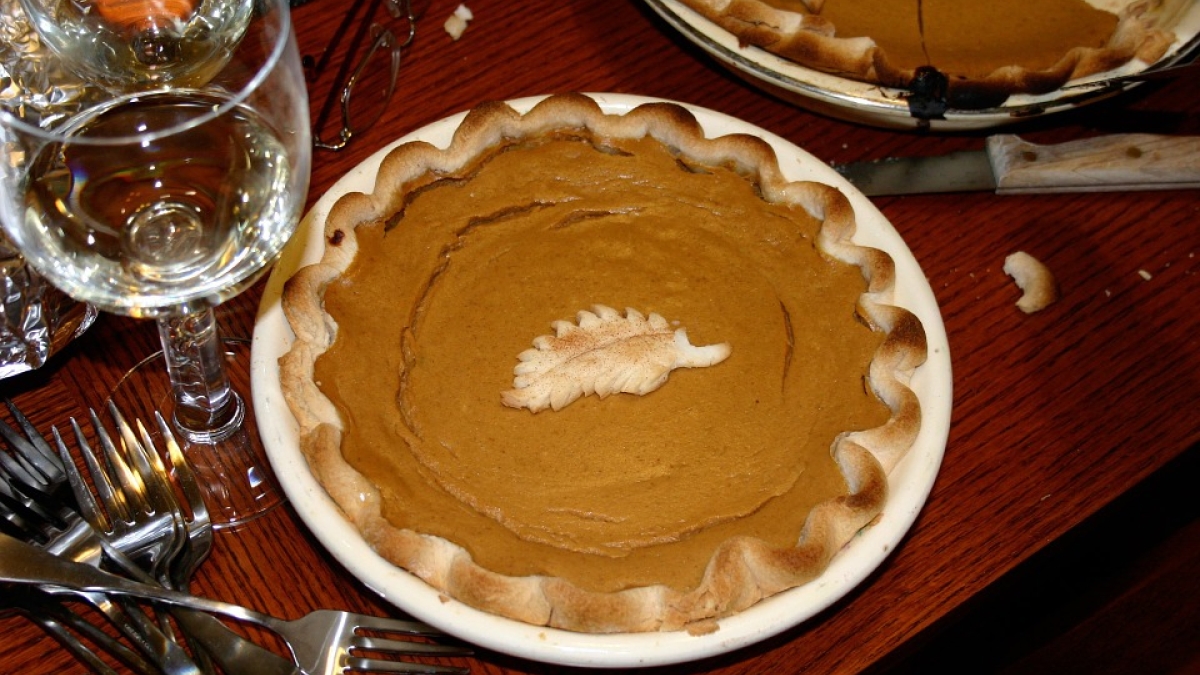Halloween and its abundance of candy for most people signals a months-long slide into "I can eat whatever I want" and calories be damned until the New Year.
For others, it’s a time filled with anxiety and loss of self-control. With Thanksgiving days away and the holiday season upon us, focus on food consumption will be a big energy drain for millions of Americans. But it doesn't have to be that way, said Arizona State University Associate Professor Marisol Perez.
Perez, of ASU’s Department of Psychology, conducts theoretical research and applied studies in the area of eating psychopathology and obesity, often using a focus on Latino populations. She said overconsumption can be avoided by practicing a little common sense and some mindful eating techniques.
Marisol Perez
Question: Why do people tend to overeat during the holidays?
Answer: The holiday season is a time period filled with lots of social functions — most revolving around food. Although this can be a time of merriment and bonding with others, for those who struggle with eating and their weight, it can be a time filled with anxiety and fear.
Q: With office and holiday parties, family gatherings and meals and lots of communal eating social events, is it OK to indulge a little or is this when people need to be most on their guard?
A: There is no one-size-fits-all approach to eating and the holiday season. Research reviewing eating and weight during the holiday season found that adults tend to gain 1 to 1.5 pounds during the Thanksgiving holiday. Among college students, the average weight gain for women is 0.88 pounds and for men is 1.3 pounds. Research also tends to find that people do not tend to gain weight on the actual holiday itself, but rather the days between the holidays on the other 30-something odd days from Thanksgiving to New Year's.
Q: What are some helpful tips for people who are tempted to overeat during the holidays?
A: Mindful eating is a good thing to practice on a regular basis for several reasons: 1) It helps you stay tuned to your hunger and satiety levels. When you mindfully eat, you are better eating to fuel your body. You slow down your eating to allow your body to process the food and send you hunger and satiety cues. 2) It helps you to differentiate when you cognitively crave something versus really wanting it. Have you ever had the experience where you see something in a buffet and you really want it, but after one bite, you have had enough? This is a cognitive crave where the idea of that food or the positive emotions you have associated with that food made you crave it. 3) It helps you enjoy your food more. By paying more attention to the food while you're chewing it, you are savoring the food and maximizing the positive emotion it can bring you.
With mindful eating, I would recommend to walk the buffet first and decide what looks the most appealing to you. Then serve yourself what you want to eat. When you sit down, cut the food in half or down the middle of the plate. Take one bite of each food that you served yourself. With each bite, chew slowly and pay attention to the food you are eating. Ask yourself, “Does it taste like you thought it would?” Enjoy the food. After you take one bite of each different food you served yourself, stop. Talk a little with those around you; tell them a story or something new in your life. Before beginning to eat again, ask yourself, “Do I want another bite of each different food on my plate?” More than likely, there might be a food item on your plate that you are done with. Then take one bite of each food group you want to eat again. Repeat the process all over. But most importantly, remember to enjoy the food and the connection with others.
Q: If people do overeat and beat themselves up emotionally, how can they get over that?
A: For those who do indulge themselves on Thanksgiving and feel anxiety or guilt afterwards, I would say keep it in perspective. Overeating one day will not change weight significantly, and you cannot change what is in the past. For those who experience anxiety, fear or guilt after indulging, a cognitive technique that may be helpful is to ask yourself, “How do I want to feel right now? And what can I do right now to get there?” Then go do it. That can help change your mood from negative to positive.
More Health and medicine

The science of sibling dynamics: Why we fight, how we relate and why it matters
We have Mother’s Day, Father’s Day and even Grandparents’ Day. But siblings? Usually they get a hand-me-down sweatshirt and, with any luck, a lifetime of inside jokes.But actually, there is a…

New study seeks to combat national kidney shortage, improve availability for organ transplants
Chronic kidney disease affects one in seven adults in the United States. For two in 1,000 Americans, this disease will advance to kidney failure.End-stage renal failure has two primary…

New initiative aims to make nursing degrees more accessible
Isabella Koklys is graduating in December, so she won’t be one of the students using the Edson College of Nursing and Health Innovation's mobile simulation unit that was launched Wednesday at Arizona…



